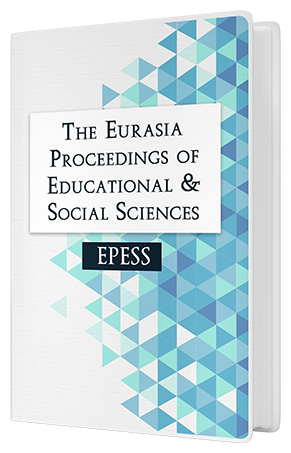District Technology Coordinator and Information Technologies Teachers’ Vıews and Roles on Technology Integratıon: A Case Study
Keywords:
Education, Technology, Technology IntegrationAbstract
The purpose of this research is to determine the duties and responsibilities of teachers working as district technology coordinator (DTC) and information technology guidance teacher (ITGT), according to the opinions of DTC and ITG teachers, to determine the studies on technology integration in education and to reveal how communication inside and outside the integration process between district technology coordinator and information technology guide teacher. In this research, case study, one of the qualitative research patterns, was used. The study group of the research consists of two district technology coordinators working in the National Education Directorates in different districts of Istanbul and two information technology guidance teachers working in different districts. The data was collected with a full and semi-structured interview form and content analysis was performed with the data obtained. At the end of the research, the duties and responsibilities of the district technology coordinator and information technology counselors were gathered under two themes: integration and non-integration. These themes are (1) studies on technology integration in education, and (2) communication between the district technology coordinator and information technology consultant teacher both inside and outside the classroom during the integration process. At the end of the study, the non-integration duties and responsibilities of ITG and district technology coordinators and the interaction between ITGT and district technology coordinators were defined. At the end of the study, the following suggestions were presented; Expectations other than their duties and responsibilities should be minimized in order for teachers of DTC and ITG to be more efficient in the process. A checklist can be prepared for the work of DTC and ITG teachers in the integration process. The number of official meetings can be increased so that DTC and ITG teachers can successfully carry out the integration process.Downloads
Published
Issue
Section
License
Copyright (c) 2020 The Eurasia Proceedings of Educational and Social Sciences

This work is licensed under a Creative Commons Attribution-NonCommercial-ShareAlike 4.0 International License.
The articles may be used for research, teaching, and private study purposes. Any substantial or systematic reproduction, redistribution, reselling, loan, sub-licensing, systematic supply, or distribution in any form to anyone is expressly forbidden. Authors alone are responsible for the contents of their articles. The journal owns the copyright of the articles. The publisher shall not be liable for any loss, actions, claims, proceedings, demand, or costs or damages whatsoever or howsoever caused arising directly or indirectly in connection with or arising out of the use of the research material. All authors are requested to disclose any actual or potential conflict of interest including any financial, personal or other relationships with other people or organizations regarding the submitted work.




